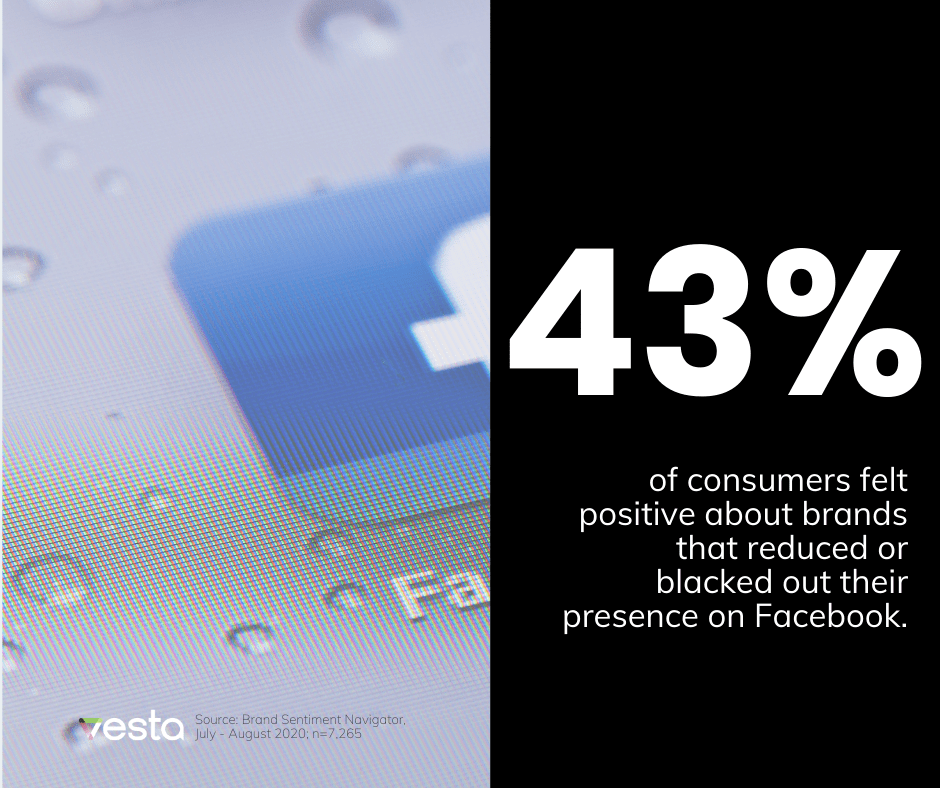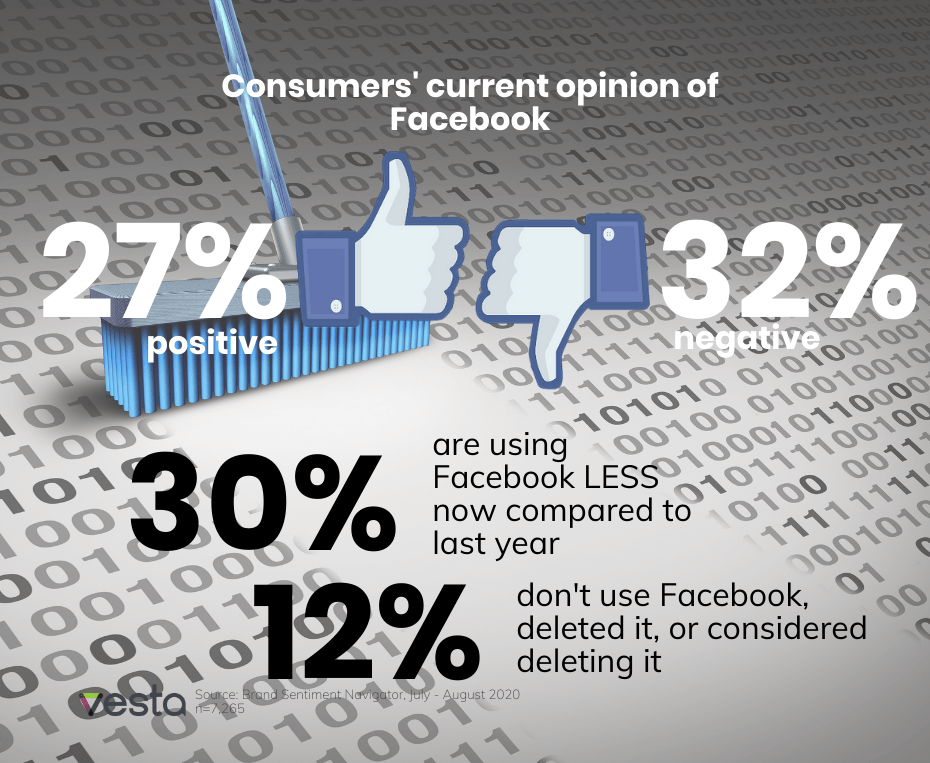Key Highlights:
- The majority of consumers are concerned about fake news / misinformation, and believe that social media platforms have a responsibility to screen their posts.
- Consumers feel more negatively towards Facebook than positively; 42% are either using Facebook less or not at all.
- 42% of respondents feel positive about brands that participated in this summer’s #StopHateForProfit ad boycott. Boomers are even more supportive of participating brands (47%).
As marketers, most of us have a complicated relationship with social media: having looked behind the curtain, we understand how the channel uses us as much as we use it. And while we have harnessed its power to acquire new customers and generate word-of-mouth, we have also understood how that ability to amplify messaging has potential negative consequences. With accountability seemingly decreasing while questionable content decisions are increasing, what once felt like a mutually beneficial partnership has become troubled.
TINT’s latest research reveals that these days, we aren’t the only ones having second thoughts about social media. Our study of over 7,000 consumers found that they are aware – and concerned – about the potential influence and negative impact of social media on individuals and society. Facebook in particular is drawing their wrath, with more consumers feeling negatively than positively about the platform.
The research paints a picture of channels that are increasingly questioned and even tainted in some consumers’ minds. And while social media is no doubt an incredibly useful and powerful tool for driving direct response and word-of-mouth, in an evolving and volatile environment, marketers need to consider the place that it can safely play in their brand’s long-term strategy. As consumer sentiment evolves, so too should our efforts to engage with them. This shift toward building relationships that can be owned and managed in a positive, proactive, and fully branded environment is one of the drivers fueling the growth of online brand communities.
With “fake news” in the news on a regular basis, awareness and concern about lies and misinformation in social media is pronounced, especially among Boomers (75%). Social media’s role in perpetuating racism and fomenting violence has also garnered attention from consumers. Younger consumers in particular are concerned about racism (70%) and violence (60%) on social media.
Not only are consumers concerned about false information, they feel that it is the responsibility of social media channels to address it, policing its presence and its accuracy. Recent actions by Twitter to tag misinformation in posts, by Pinterest to remove inaccurate information related to vaccinations, and by Facebook to ban Holocast denial content show that social media channels are responding to this consumer pressure.

Consumers are increasingly looking to brands to speak up about societal issues, from racism to climate change. So it is not surprising that our study found significant support for the brands that participated in this summer’s #StopHateforProfit ad boycott of Facebook. It’s worth noting that Boomers were even more in favor of participating brands (47%). And it signals to marketers that consumers see a meaningful role for brands to advocate for causes and issues.

Given the general sentiment around social media, it is perhaps not surprising that, as the first and largest social media platform, Facebook sentiment is increasingly negative. And while growth of the channel continues, the result of this negativity is clear in the significant movement to decrease or cease use of the platform.
Whether Facebook’s dominance in consumers’ social media habits continues may be further impacted in the coming weeks as the election is held and the Black Lives Matter movement continues. But marketers concerned about brand safety and building positive and lasting consumer relationships should be acting now to determine where those efforts belong.
About the Brand Sentiment Navigator:
TINT’s Community Powered Marketing provides us with direct access to millions of consumers, allowing us to tap real-time sentiment in this fast-moving crisis. Since March, our ongoing Brand Sentiment Navigator has surveyed over 35,000 consumers, revealing insights into U.S. consumers’ changing opinions, attitudes and behaviors to help brands make better decisions faster. The research in this post was gathered from Wave 7 of this study, conducted in July and August 2020 with 7,265 respondents. Visit our research hub for access to all of our studies by following this link.



